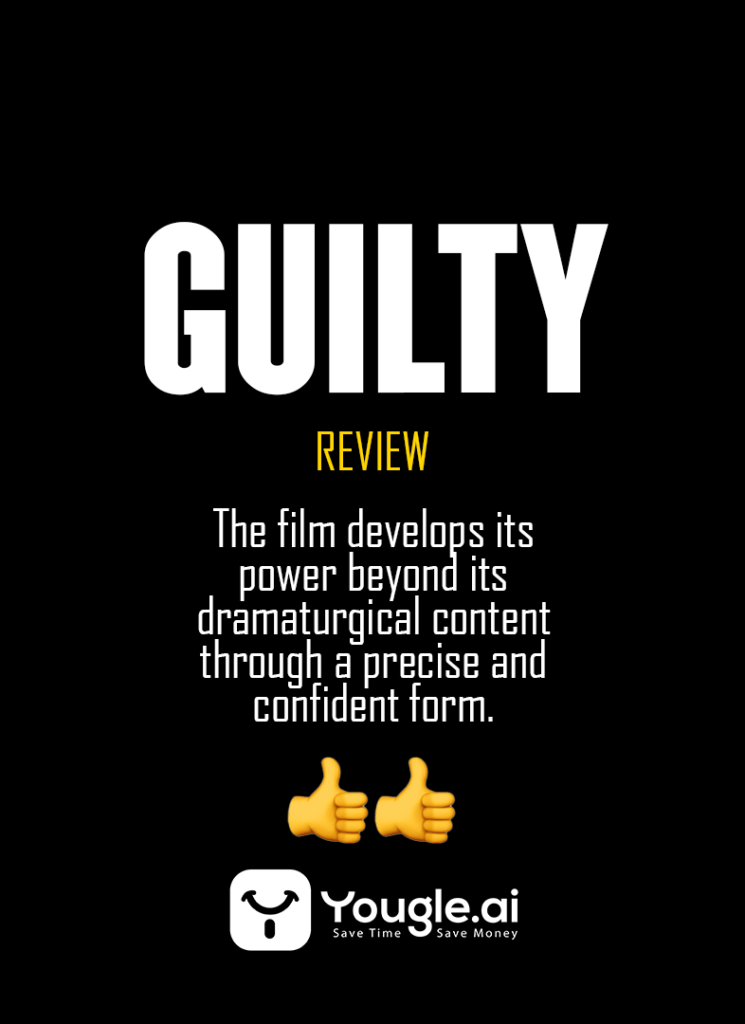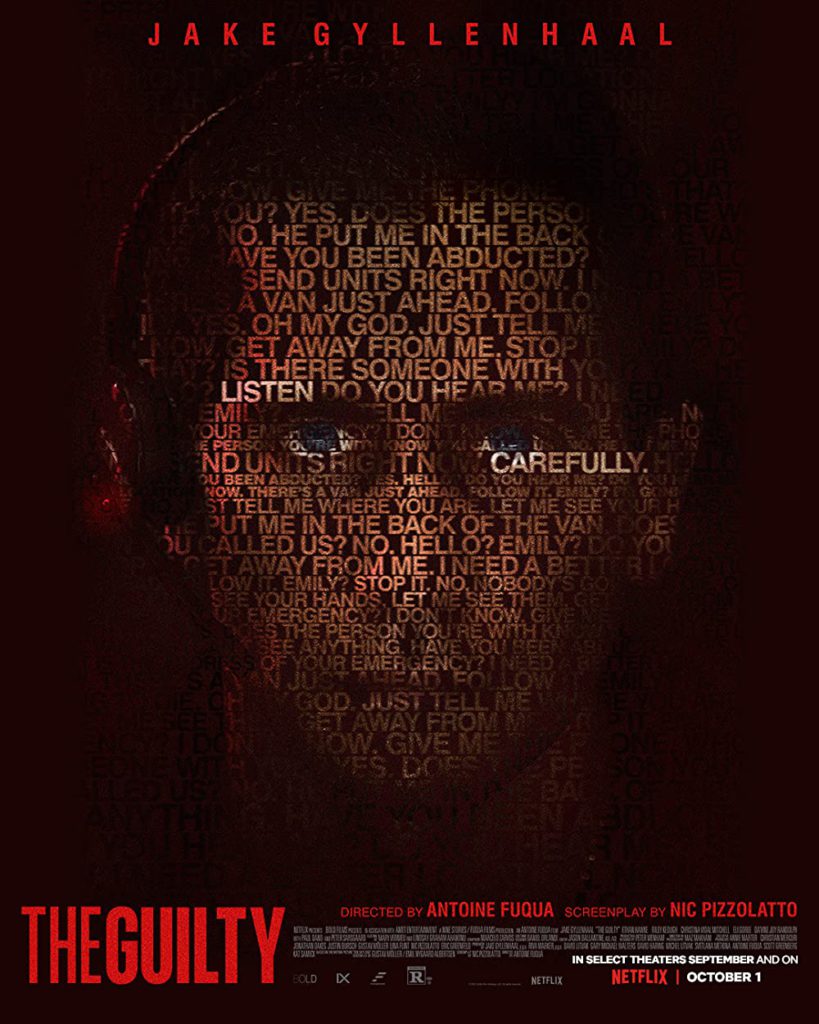One Line Review: The film develops its power beyond its dramaturgical content through a precise and confident form.
Introduction
In the end, which thriller you prefer will depend on whether you prefer your thrillers acoustic or electric, chilly or hot-wired. Gustav Moller’s 2018 Danish drama “The Guilty” or the Netflix remake of the same name will depend on your personal preferences. Additionally, your response to the question, “How many close-ups of Jake Gyllenhaal are too many?” will be critical.
Plot Summary and Analysis
A massive fire raged in the forests around Los Angeles. The city is in a state of emergency, which is keeping the police emergency center busy. Officer Joe Bayler (Jake Gyllenhaal) is one of the officers doing the phone service. It quickly becomes clear that this is not there voluntarily. In an irritable tone, he rebukes an obvious drug addict who calls because he was delirious. Or he lets another man stew who has let himself be robbed by a prostitute and no longer dares to get out of the car. Joe makes no secret of the fact that this work bores him and that he feels called to more important tasks. But apparently, his transfer here was part of a punitive measure. If the legal proceedings scheduled for the next day expire in his favor,
Shortly before the end of his shift, Joe receives a serious phone call suggesting that the woman on the phone has been kidnapped. In order to save Emily (Riley Keough), he will from now on pull out all the stops by involving various police departments, asking his ex-partner for help, and collecting more and more details about the woman’s whereabouts – everything from his position behind the computer screen and from the phone. The doggedness with which he goes to work could be seen as really care, but there is always something irritating in Joe’s way.
Extremely tense aura
The mood in Antoine Fuqua’s The Guilty is tense from the start. Joe snaps at his colleagues incessantly and takes out his bad mood on them. It is believed that it could blow up at any moment. After all, the outbreaks are inevitable, sometimes more, sometimes less violent. You can’t call Joe likable. Rather, it triggers a feeling of malaise, impatience, and anger. You won’t be able to empathize with him until the end. His self-righteous manner threatens his clearly evident urge to want to help, to put him in the shade. The American director who has already dealt with several action thrillers such as Training Day (2002), Shooter (2007), and The Equalizer (2014) made a name, succeeds in creating a multi-layered, unadorned drawing of this figure, on which the entire plot and emotional level of the film are based.
Jake Gyllenhaal Killing it
For the second time since Southpaw (2015), he works with Jake Gyllenhaal as the leading actor. Gyllenhaal embodied in the remake of The Guilty(2018) by the Swedish-Danish director Gustav Möller his role with a haunting physical presence. Anger and despair alternate on his face, his muscles tense, always ready to make him jump up immediately. Only gradually does the pressure that Joe has to feel on his shoulders open up and that is by no means only related to saving the woman on the phone. It is speculated whether he suffered trauma from the raging fire outside and whether his asthma is a memory of it. What about the dismissive attitude of his wife, who apparently does not want to come to the upcoming court hearing? What does the journalist want, who calls him several times and asks about the process?
The title of the film is to be understood as emblematic. Who is really guilty in this story and who is not as easy to tell apart as it is suggested at the beginning. Concepts like truth and perception get mixed up here. At the same time, the drama offers a nerve-wracking examination of topics such as guilt and atonement, which is very similar to the intensity of Friedrich Dürrenmatt. The viewer is forced to take a position, to bring himself into the game, and cannot count on the solution to a moral conflict being taken from him.
Conclusion

The film develops its power beyond its dramaturgical content through a precise and confident form. The unity of space and time enables a concentration on the essentials, only requires a few technical tricks. The picture, bathed in shades of black and blue, can to a certain extent be seen as a symbol of the mental state of the main character. The same applies to the sound level, which works with equally reduced but effective means. Shaped by whistles, ring tones, noises that are filtered through the telephone line, and various voices, it drives Joe’s action, fills his head, makes him mad, and only allows him the necessary self-reflection when it finally becomes quiet.


